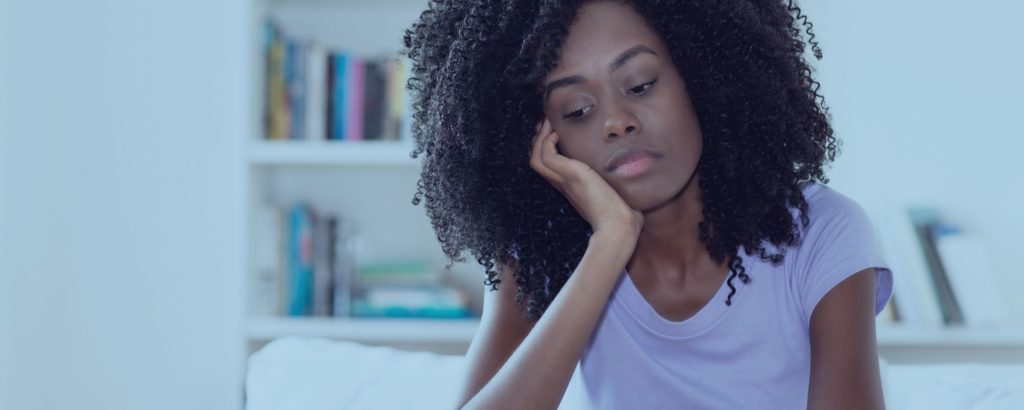You may be able to completely finance your purchase without the required down payment, but you will have out-of-pocket expenses when you buy a home. Excluding a down payment, which is typically 3%-20% of the purchase price, you will need to pay any contractors that refuse to be paid at closing, a moving company (or truck rental) to haul your belongings, and fees for moving or setting up the services you need at your new home. For these reasons, as well as any potential down payment, it’s important to save money prior to starting your home search.
For many people, the key to saving up for buying expenses is limiting spending in other places, like on things you don’t need. Sounds simple, right? Except, it isn’t. We are human and that means we are driven by emotions and habits. It can be hard to change the way we think and react when much of the behavior that can hinder financial growth and savings is learned from an early age. But it is possible to change. You just need to start with small steps.
The first step is changing the way you think about your purchases. Below are questions to ask yourself to help you stop spending money on things you don’t need. These should be applied to anything you are buying outside of groceries, gas, and other products and services you need for shelter and daily work.
1. Is This Something I Need?
Follow-up Questions: Are you currently using something else for its purpose? If so, is what you are using working?
For example, you are out shopping and see an attractive shirt. Ask yourself, do I have other shirts at home? Of course. Do you have shirts that are similar to this one? Probably. Are they still in good condition? If you answer yes, save your money; however, if you need to replace a worn shirt that has holes, you may have a reason for buying it.
2. Can I Purchase This Used or Borrow/Rent It?
Follow-up Questions: Is purchasing it used a good idea? Where am I considering buying/renting it used?
If you’re considering buying a shirt in a department store, chances are you won’t be able to find that exact shirt in a consignment shop or your friend’s closet. However, if you are in need of a shirt for a special occasion, you may be able to find something just as nice that you can buy used/barely used or borrow from a family member or friend. This will help you save money, which you can then put toward the savings for your new home.
Of course, buying something used or borrowing/renting it isn’t always a good idea. Products like car seats, mattresses, and hats can actually be hazardous to your health if purchased used, which is why some places put bans on the sale of these items. It can also be a waste of money to buy certain products, like vacuums and kitchen countertop appliances, because of how they wear down. Before purchasing anything used, make sure you do your research and only buy refurbished items from an authorized dealer. Places like Goodwill may be cheap, but you can’t guarantee the quality of what you’re buying.
3. Is This a Purchase Influenced by Emotion/Strong Feelings?
Follow-up Questions: Are you feeling sad, depressed, stressed, desperate, guilty…or even hungry? How about excited or happy?
Purchases are often influenced by how we are feeling at the moment. Emotions and hunger can cause you to buy more than what you really need. Have you ever gone grocery shopping when you’re hungry and ended up buying a few extra things because they sounded really good at that moment? Have you ever felt sad and bought yourself a new game because it made you happy? These purchases are influenced.
But emotions don’t always need to be negative to cause overspending. They can be positive too. Have you ever met a goal or succeeded in completing a task and purchased something for yourself as a reward? We are less likely to overspend in a positive mind frame, but it does happen. And we aren’t saying to never reward yourself, just do it on a small scale. The big reward comes after you’ve saved all your money for your home purchase.
4. How Often Will You Use This?
Follow-up Questions: Do you have room for it? Will it create more spending?
Obviously, if you only plan on using the product in question once, it probably isn’t something you should purchase. Circling around to the shirt, if it’s a top you’ll wear to work every week, it’s a reasonable investment. If it’s a shirt for a wedding, it’s a better idea to make what you already have work or borrow a shirt from someone you know.
It’s also important to keep in mind that you shouldn’t purchase something just because it’s on sale. People think if they see the word “sale” they are getting a deal. That’s not always true. It just means that store is selling the item for lower than it’s usually priced, but what it’s usually priced at may be at a high markup. In fact, you may be able to get it even cheaper by just waiting 6 months to purchase it. Unless you’re in need of it right now, it could benefit you twice over to just save your money.
But what if you come across a great deal – like a cheap laptop? Consider the follow-up questions. Do you have room for a laptop? You probably do. They aren’t very big and don’t take up much room. Will it create more spending? That depends on how old it is and where you’re buying it. Refurbished laptops can be a good deal when you need something for schoolwork, streaming Netflix, or browsing the internet. However, if you’re buying from a private seller and the computer hasn’t been maintained, you may end up paying more money to have it serviced and updated.
5. How Much Will You Have to Work to Pay for It?
Follow-up Questions: Are you paying cash or putting it on your credit card? Is that time worth it to you?
Every purchase you make costs you time and effort, in addition to money. You likely won’t think twice about this when it comes to buying food and paying for housing, but it should be top of mind when making unnecessary purchases. It helps put things into perspective.
Say you make $15 per hour and want to purchase an air fryer. They cost around $100 before taxes, which means you will have to work 7-8 hours to pay for it in cash. That’s the entirety of a traditional workday. If you purchase with a credit card, it’ll be even more than that. Are those 8 hours worth it to you? They may be, if you really love fried food. Or will you be happier if those 8 hours go toward buying your new home?
6. Will it Improve Your Life?
Follow-up Questions: Will it bring you joy? Will it bring you more wealth?
This last question asks you to look at the big picture. Is this purchase going to make your life truly better? If you hesitate to answer this, the answer is likely no.
Returning to the shirt mentioned earlier – if you plan on wearing it to a job interview that could lead to an increase in income, this would be a purchase that will improve your life. But, if it’s just to look good for folks on the street, you need to ask yourself what will bring you more joy – the shirt or buying a new home. Similarly, if the purchase is for a program or tool that will help you do your job better so you can make more money, this would be a purchase that will improve your life.
Once you get in the habit of asking yourself these questions before spending money, you will find yourself pocketing increasing amounts. The more you save, the sooner you’ll be in your new home. And keep in mind, it may feel like a sacrifice now, but it won’t when you’re enjoying the benefits of your new home.
[the_grid name=”Home Buyer Tips”]




